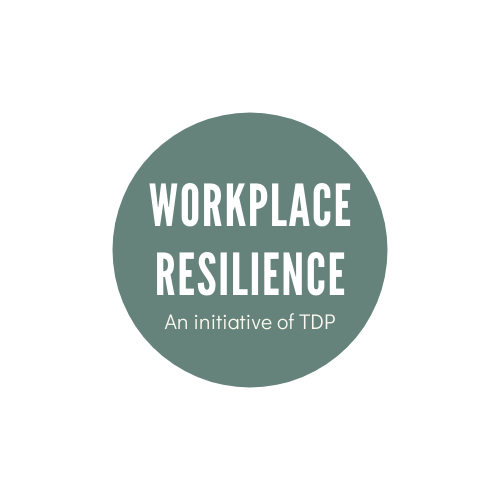Make your workplace grief ready.
Our Workplace Resilience program offers workshops and other learning opportunities for workplaces that want to better support employees struggling with grief, whether from loss on the job, or from personal losses.
“
Loss isn’t an easy thing to explore under any circumstances, but it was powerful to see how everyone around the table came together. I left feeling so inspired.
”
Our Offerings
Signature Trainings for Teams
We offer single and multi-session workshops tailored to your organization’s culture, pain points and strengths. This is best if you want to send a strong message of support to your team, you’re looking for shared language and culture to unite the team. Pricing starts at $1000.
We offer learning sessions to the public, some open to all, and some geared to certain roles and industries. This is best if you want to share a low-pressure opportunity with a colleague or team leader.
Public Workshops
Speaking, Panels, and Retreats
Topics include: grief and equity, workplace wellbeing, psychological safety, secondary trauma, compassion fatigue.
Talk through a specific question or opportunity at your workplace, or work with us to formulate your organization’s tailored grief readiness plan. Book a discovery call below.
Consultation
Have another idea in mind? Or not sure which of our offerings makes sense for your team, or are figuring out how to advocate for it? We’d love to build something meaningful for your team. Book a free 20-minute discovery call below.
And More
We’ve partnered on collective care initiatives with:
“Through the workshop, I discovered how many of us had been affected by loss, and learned how to be a more supportive friend and colleague…This will not only benefit us as individuals, but will lead to a more inclusive culture.:
- Workshop Participant
Want to stay in touch? Subscribe to Our Quarterly Newsletter
Thank you for your interest in Workplace Resilience, a program of The Dinner Party. By subscribing to our newsletter you'll receive quarterly updates on our work advocating for grievers at work, what we're seeing in the field, and exclusive discounts to events and offerings.









